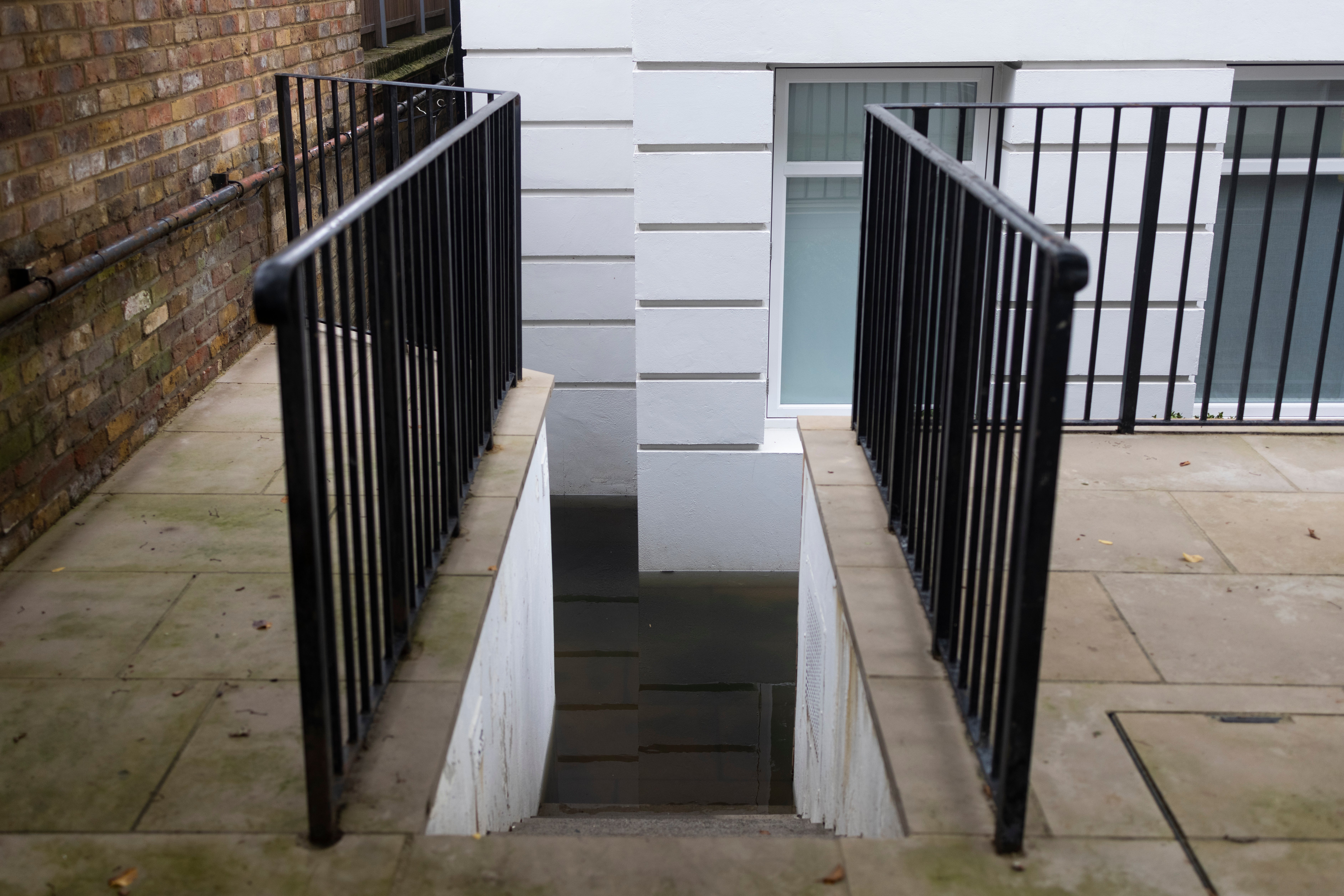Are London floods linked to the climate crisis?
As average global temperatures rise, the atmosphere can hold more water, worsening impacts of heavy rainfall, scientists warn
Your support helps us to tell the story
From reproductive rights to climate change to Big Tech, The Independent is on the ground when the story is developing. Whether it's investigating the financials of Elon Musk's pro-Trump PAC or producing our latest documentary, 'The A Word', which shines a light on the American women fighting for reproductive rights, we know how important it is to parse out the facts from the messaging.
At such a critical moment in US history, we need reporters on the ground. Your donation allows us to keep sending journalists to speak to both sides of the story.
The Independent is trusted by Americans across the entire political spectrum. And unlike many other quality news outlets, we choose not to lock Americans out of our reporting and analysis with paywalls. We believe quality journalism should be available to everyone, paid for by those who can afford it.
Your support makes all the difference.On Monday afternoon, parts of London saw rainfall so intense that one month’s-worth of water plummeted from the sky in just over an hour.
A total of 47.8mm (2 inches) of rainfall in 24-hours was recorded in Kew, where the average monthly rainfall in July is just 44.5mm. Elsewhere there were reports of 3 inches of rain in 90 minutes.
Homes were flooded, residents were evacuated from some areas, cars were submerged in water, and train and Tube services were severely disrupted as flooding on the lines caused cancellations and delays.
At Sloane Square in London, dramatic footage of water cascading down the stairs to the platforms showed the seriousness of the floods and highlighted the vulnerability of London’s infrastructure to extreme weather.
The deluge comes as other major cities are also grappling with weather-related disasters.
In the last week, tropical storm Elsa, as well as affecting cities in Cuba and Florida, also caused flooding as far north as New York City, resulting in similar scenes to those in London this week.
Meanwhile, flooding has also hit Beijing, with thousands of people evacuated, and on the US’s west coast, record temperatures and catastrophic wildfires continue to burn.
But was London’s intense storm simply a freak event, or is it merely the latest symptom of the worsening global climate crisis?
Meteorologists are always especially careful not to conflate short-term weather with long term climate, as sometimes freak weather events may have no clear link to the climate crisis.
However, over longer periods of time, extreme weather incidents can build up patterns which then provide scientists with new trends which can be at least partly attributed to the alterations in the global climate caused by human-made emissions.
Sir Brian Hoskins, chair of the Grantham Institute and a professor in meteorology at the University of Reading, told The Independent: “The weather pattern we have is conducive to this sort of thing happening, so it’s not surprising that there will be heavy rainstorms.
“But the number one thing to cling on to with this, is that an atmosphere that’s warmer can hold more water vapour. If it’s 6 degrees warmer it can hold 50 per cent more water – so half as much again.

“We’re not 6 degrees warmer, but as we warm up, the atmosphere can, and in general does, hold more water, so the same rainstorm is going to give you that much more rain.
“So with the climate 1-1.5 degrees warmer, we could say that storm is 10 per cent stronger than it would have been otherwise. That’s a definite climate change link.
“As to whether the weather pattern itself is more likely because of climate change, we don’t know. But there is an expectation that these sorts of storms, when they occur, will be much heavier.”
Speaking about freak weather events, Sir Brian added: “I’m always very cautious, because I’m old enough to remember the summer of ‘76 and that was not climate change, that was a very hot summer. But if it happened now, it would be even hotter and drier.”
But since then, he said, there has been a huge rise in awareness of how fast the climate is changing, not least because “the number of heatwaves has gone up and up, and the number of cold spells has gone down and down”.
Professor Ralf Toumi, co-director of the Grantham Institute, from Imperial College London’s faculty of natural science, said more could be done in London to manage the impacts of such storms.
He told The Independent: “Under climate change heavier or more intense rain is expected as the atmosphere will hold more moisture. The risk of flash flooding will also increase if the weather system does not move away. Local solutions are to modify our land surfaces by, for example, more vegetation, larger drains, and [use of] special surface permeable material.”
Green Party London Assembly Member Zack Polanski said the flooding across London highlights what other countries are already experiencing due to the impacts of the climate crisis, and called on the government to commit greater resources to tackling the issue ahead of the UN’s Cop26 climate summit in Glasgow later this year.
The flood water cascading down the steps of Sloane Square station last night shows that the reality of climate change isn’t in the future or far away – it’s right here, right now
He told The Independent: “The flood water cascading down the steps of Sloane Square station last night shows that the reality of climate change isn’t in the future or far away – it’s right here, right now. Not just in London, but for billions of people around the world, particularly in the global south.
“Greens on the London Assembly put forward a report looking at how climate risks will affect the capital, and we need strong political action to keep our flats from overheating, our schools and stations from flooding, and our water supply from drying up.
“The government has set a target for going net-zero, but doesn’t back it up with real action. We need to see real investment in decarbonisation here in the UK, rather than announcing big ideas like the Green Homes Grant only to scrap them mere months later, while still pressing ahead with toxic plans like a £27bn road building scheme.
“Before Cop26, the government must show real leadership on the climate, and go much further and faster than we are at the moment.”

Demands for action are not only coming from opposition parties but also from sectors such as the insurance industry.
Zurich Insurance UK’s Joseph Priestly, said: “Far from being a rural issue, we’re seeing that flooding can hit our biggest cities. The sight of London streets submerged in water is likely to become more common as climate change brings increasingly extreme weather.
“Flash flooding will pile greater pressure on people living in our cities’ most deprived neighbourhoods. In communities where flood risk and poverty levels are high, the government should make its flood resilience grants available up front.”
He added: “The grants – which offer homeowners £5,000 to help defend their properties – are currently only available after a flooding event. Ministers should ensure the grants are available throughout the year so that people in the poorest parts of London and other major cities can protect their homes.”
The Department for Environment, Food and Rural Affairs has been contacted for comment.
Join our commenting forum
Join thought-provoking conversations, follow other Independent readers and see their replies
Comments